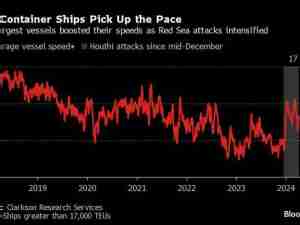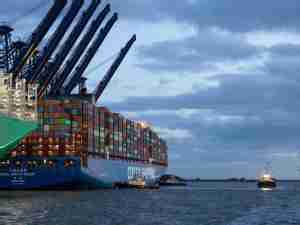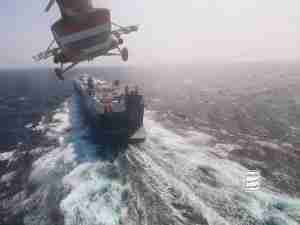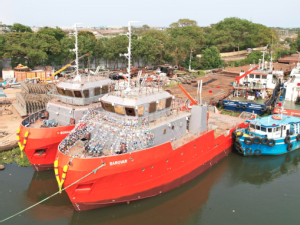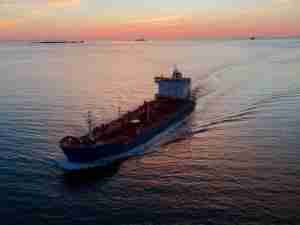A ship carrying Australian cattle initially headed to the Middle East appears to have diverted toward Africa, a first indication that ships loaded with animals could face longer journeys due to the escalating conflict in the Red Sea.
The Bahijah left Fremantle port in Western Australia for Aqaba, Jordan on Jan. 5. On Tuesday, it changed course for East London in South Africa, according to shipping data compiled by Bloomberg.
That has the potential to raise animal-welfare concerns, should the diversion extend the vessel’s voyage. It also serves as a reminder of the disruptions to food supply chains due to the conflict.
Since the war between Israel and Hamas erupted in October, Iran-backed Houthis have attacked ships in the Red Sea, disrupting flows of commodities from oil to crops. The US launched another round of strikes on Yemen’s Houthis overnight as the militant group continues to roil global shipping markets.
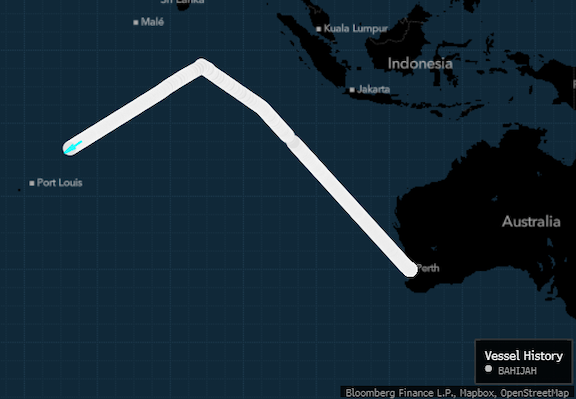
The vessel has diverted away from the Red Sea due to the worsening security situation, according to a statement from the Australian government. No significant welfare concerns have been reported at this time, it stated.
Livestock, primarily sheep, are exported through Fremantle. Jordan often imports live animals ahead of Ramadan, which this year starts in March.
Some Middle Eastern nations import livestock — rather than meat — so that animals can be slaughtered in compliance with religious followings. However, the practice has raised concerns about the health and safety of animals aboard, and some countries like Australia are moving to phase out the flows.
“This redirection will likely prolong an already long and arduous journey,” said Suzanne Fowler, chief science officer at the Royal Society for the Prevention of Cruelty to Animals Australia. She called for live exporters to suspend voyages to destinations that are in, or near, regions of conflict.
Delays to ships carrying livestock can jeopardize a limited supply of food, bedding and medication on board and increase animal stress, she said.
“All Australian livestock consignments have reserve fodder on board as well as Australian Government accredited veterinarians and stock hands that are responsible for constantly monitoring the welfare of animals on board,” said Mark Harvey-Sutton, chief executive officer at the Australian Livestock Exporters’ Council.
Fremantle port declined to comment.
Ship database Equasis lists the vessel as owned by Bassem Dabbah Shipping Inc. and managed by Korkyra Shipping Ltd. in Croatia. The Bahijah is listed as part of Korkyra’s fleet on the company’s website. It states that it has a cargo capacity of around 8,000 cattle or sheep. Korkyra didn’t immediately respond to email and phone requests for comment.
